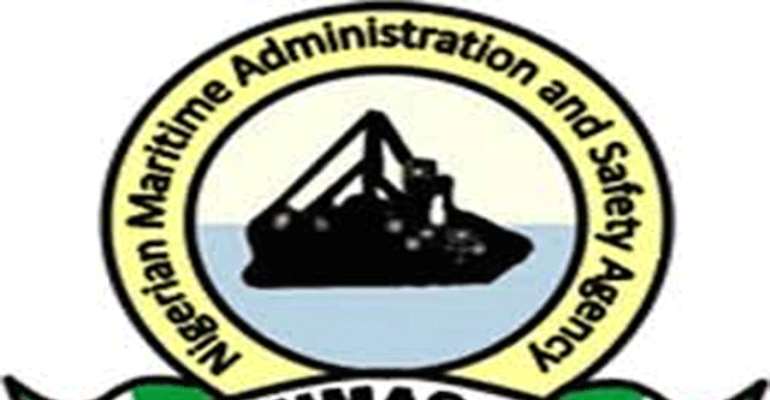Again, NIMASA blocks NLNG from exporting Nigeria's gas

The Nigerian Maritime Administration and Safety Agency (NIMASA) has again blockaded Nigeria LNG Ltd. ships thereby halting exports.
Spokesman of the NLNG Kudo Eresia-Eke said that NIMAS issued the ship detention order on Saturday, detaining three of its vessels in 'flagrant disregard' of a court order.
'The potential implications of this current action by Nigerian Maritime Administration and Safety Agency on Nigeria LNG operations are enormous and would impact negatively on its international LNG buyers,' Eresia-Eke said in statement.
Nigeria LNG vessels, LNG Enugu, LNG Oyo and LNG Imo, were barred from 'accessing or leaving the company's loading bay.'
Nigeria LNG was directed on May 18 to pay outstanding levies to NIMASA after a state arbitration panel ruled the operator of Africa's biggest liquefied natural gas export terminal wasn't exempt from taxes.
NIMASA blockaded Nigeria LNG's Bonny Island loading bay May 3, forcing it to halt exports before they resumed on May 5 after government intervention.
Nigeria LNG said it paid $20 million in outstanding levies to the maritime regulator 'under protest' and filed a suit on June 18 against the agency to seek 'judicial clarity and interpretation' on the legality of the levies.
Eresia-Eke had said last Tuesday that the protracted dispute between both government agencies was as 'a result of perceived conflict in the enabling Acts of both organizations, namely the Nigeria LNG (Fiscal Incentives, Guarantees and Assurances) Act, on one hand, and Nigerian Maritime Administration and Safety Agency Act, Merchant Shipping Act and Coastal and Inland Shipping Act, on the other hand.'
While NIMASA contended that its levies were applicable to all companies doing business within Nigeria's territorial waters, including the NLNG, the NLNG is arguing that they were exempted from such levies and charges by virtue of the provision of the NLNG Act.
Mr. Eresia-Eke recalled that NIMASA had filed a suit against NLNG in 2010 claiming entitlement to these levies, adding that after preliminary proceedings, NIMASA filed an application to withdraw the suit; and on May 3, shortly before the commencement of hearing on the matter, opted for self-help by blocking the Bonny Channel for two days.
The blockade, the NLNG Manager said, prevented ingress and egress of NLNG chartered vessels, with attendant financial losses and reputational damage to NLNG and Nigeria in general.
He said following the blockade, the Federal Government had directed the NLNG management to comply by paying the levies, pointing out that the company has already commenced the payment by installment of the debt to NIMASA, though without prejudice to its right to seek judicial interpretation in the court of law.
'It is instructive to note that Nigeria LNG Limited and its Shareholders still firmly believe in the rectitude of their earlier position that NLNG is duly protected by the provisions of the NLNG Act against the payment to NIMASA of the Sea Protection Levy, the 3% freight levies on cargo exports shipped by NLNG, and that the 2% Cabotage Levy on LNG carriers is inapplicable because NLNG's LNG vessels are not involved in coastal trade or cabotage,' Mr. Eresia-Eke said.
'NLNG is a Nigerian company involved in, almost exclusively, international export business and is thus subject to all relevant national and international laws, standards and ethos with which it must comply. This, amongst others, requires that all its dealings are governed and premised on the universal principles of the rule of law to which the Nigeria Government also affirms its commitment,' he added.
He said the NLNG has clarified that the issues it has with payment of any levy, charge or impost has little to do with the amounts involved, but more with the principle of the rule of law, so that the company could safeguard its international business, which rests squarely on its reputation as a law abiding company, as well as Nigeria's reputation in the global community.
Nigeria LNG is owned by the Federal Government of Nigeria, represented by the Nigerian National Petroleum Corporation, NNPC (49%) , with its partners, Shell Gas BV, SGBV, (25.6%), Total LNG Nigeria Limited (15%), and Eni International (N.A,) N. V. S. a. r. l (10.4%).
The law that set up Nigeria LNG exempted the company from paying taxes for 10 years or until the cumulative price of liquefied natural gas reached $3 for a million British thermal units. Nimasa said this tax break expired in January 2004 after gas prices reached $9 a million British thermal unit on Nymex.
The Bonny Island plant is able to produce 21.7 million metric tonnes of chilled gas a year, or about 8 percent of the world's total, according to data from the International Group of LNG Importers. It supplied 12 per cent of the world's LNG for near-term delivery in 2011, according to the group.
Nigeria LNG has long-term contracts with buyers in Spain, Italy, France and Turkey, exporting 333 cargoes in 2012, the most since sales began in 1999, according to its website.
State-run Nigerian National Petroleum Corp. is the biggest investor, with a 49 per cent stake. Units of Royal Dutch Shell Plc (RDSA), Total SA and Eni SpA (ENI) respectively hold 26
